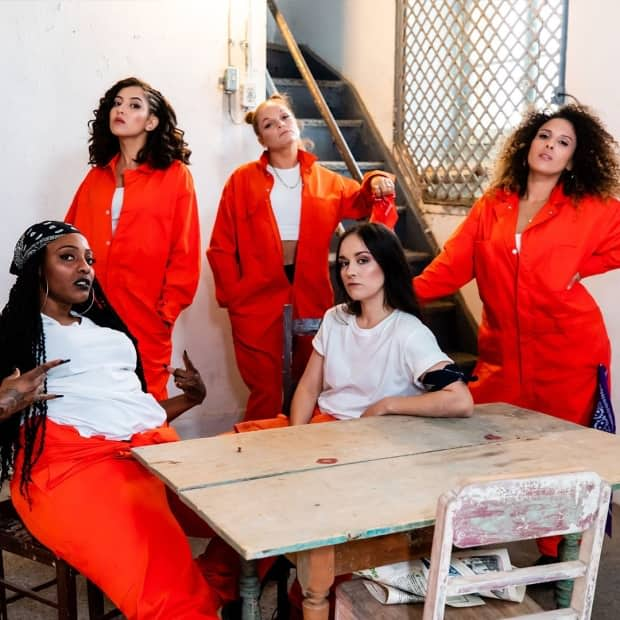Quebec women join forces as #Rapelles to highlight female hip hop artists

For years, Meryem Saci often found herself being one of only two or three female hip hop artists performing in Quebec's concerts and festivals. She says that hasn't changed much since she kicked off her musical career.
"We don't seem to have as much opportunities for exposure, or being featured, or just having as much access to the scene on the mainstream level," said Saci.
"From my perspective, it seems that the focus was a lot more on the tradition of hip hop in Quebec being mostly in French first of all, and mostly men."
That's why Saci joined forces with five other female hip hop artists in Quebec to launch the EP #Rapelles, in honour of International Women's Day last month.
Saci's song for the EP, "Les Ailes," is an ode to breaking stereotypes and the stigma around female rappers.
"In the lyrics, I do speak about us breaking the chains, the stigmas, the stereotypes," said Saci. "In terms of giving ourselves the opportunity to take the mic, to take a stand."
Since the album was released, the #Rapelles movement has grown into a wider social media campaign, and has allowed a network of female hip hop artists and fans to connect with each other and collaborate.
The women met up to shoot a promotional video for the release. For a lot of them, the day of the shoot was their first time meeting each other in-person.
"Some I knew from before and some I just met then," said Saci. "It was just such a beautiful encounter, everybody was down for each other and supportive and excited to be part of something like that and embracing our differences."
Saci said, aside from smashing the stereotype that good hip hop artists have to be male, the project also challenged the stereotype that women are all competitive with one another and jealous of each other.
"This was not competitive at all. If anything, it was a big sisterhood and we barely knew each other so it was really cool," said Saci.
OneNessa, who was also featured on #Rapelles with her song, "Partir," feels she now has a new support network because of the project.
"I'm trying to collaborate more with women. I think if we do that, more and more we will find more unity among each other instead of waiting for the boys' club to include us," said OneNessa.
She hopes that, once the pandemic eases and live shows resume, some of those collaborations will break out onto the stage.
"Post-pandemic, I feel like people are so excited to create and to have innovation and to even maybe come up with new ideas for festivals and shows so I'm hoping there will be a change," OneNessa said.
For more stories about the experiences of Black Canadians — from anti-Black racism to success stories within the Black community — check out Being Black in Canada, a CBC project Black Canadians can be proud of. You can read more stories here.


 Yahoo Finance
Yahoo Finance 